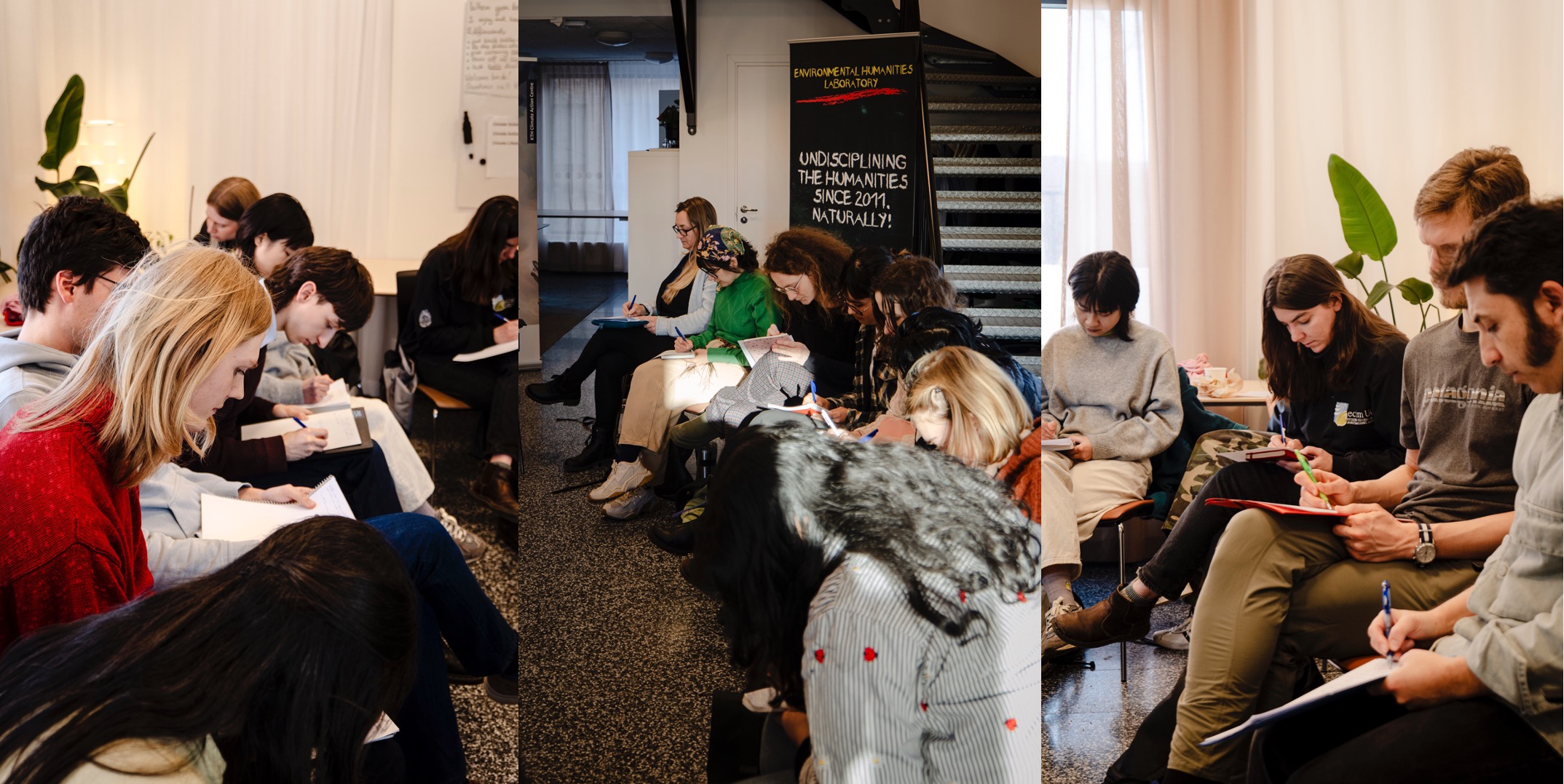Workshops on climate futures creative writing co-hosted by EHL and Students for Sustainability

This Spring the KTH Students for Sustainability and researchers from the EHL & Div. of History of Science, Technology, and Environment co-hosted a creative writing workshop series on climate futures. The workshops were designed to encourage and inspire how we can together creatively imagine what the future of our cities may look like.
The workshop consisted of collective reflection and sharing, creative writing exercises and presentations on climate fiction, radical imaginaries, ecopoetic strategies of writing, and the use of creative tools in protests.
Participants were asked prior to the workshop to work on an idea of a short text, image, video or a cartoon on how they imagine their cities in the future (from 20 to 200 years), reflecting on their hopes and/or fears for the future of “their” city. Their” city could be where one grew up, where one lives now or a place they love very deeply. As imaginaries can be useful in articulating what we hope and fear for in the future, both dystopian and utopian climate imaginaries were encouraged.
During the workshops the writers shared their ideas for an entry on their city in the future. In small groups or plenary, they discussed the worlds they imagine and the emotions that drive them to write. Engaging with questions of readership in the climate issues and struggles, participants discussed prospective audiences ranging from specific fiction communities, academic forums such as Osqledaren , to policy implications of their writings. There were also creative writing exercises, giving participants limited time to write freely and non-stop from various prompts, such as “Something I love about being alive on Earth is ….. “ ; “This is when I realized that I had agency….” resulting in many wonderful short texts that participants shared among them.
After the exercises more practical questions also arose: Where to start a story? How to create a twist? What voice or style, framing devices, rhythm and structure, and how to write from a non-human perspective. Participants shared with each other challenges in the writing process, tools for depicting different perspectives of characters in the storylines and writing techniques for capturing the surroundings and the experiences of the characters living in a world transformed by climate change.
During the discussions it was also apparent that certain forms and genres such as sci-fi are more commonly used to frame futures and discuss environmental issues. A common line of the discussions was that writing could be an exercise of attention to others, human and non-human, that can reframe universalizing narratives and perspectives about climate change and generate alternative stories. The workshop gave participants an opportunity to reflect on their own notions of story and future and to engage critically with their writing processes and methods, enriching also their academic writing skills.
Participants' final contributions will be added to the
OCC! Atlas of the other worlds website
, where we have gathered creative entries on climate futures from students across the globe. Read more about the OCC! project
here
. If you want to know more about the OCC! project contact Anja Rieser at
amrieser@kth.se
.

